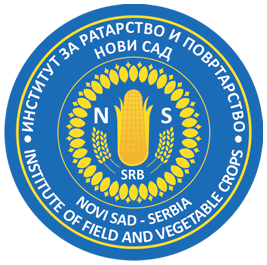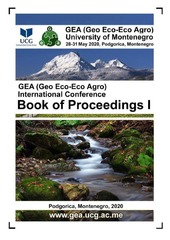Приказ основних података о документу
Climatic change and agricultural production
| dc.creator | Popović, Vera | |
| dc.creator | Jovović, Zoran | |
| dc.creator | Marjanović-Jeromela, Ana | |
| dc.creator | Sikora, Vladimir | |
| dc.creator | Mikić, Sanja | |
| dc.creator | Bojović, Radmila | |
| dc.creator | Šarčević-Todosijević, Ljubica | |
| dc.date.accessioned | 2021-10-14T16:00:58Z | |
| dc.date.available | 2021-10-14T16:00:58Z | |
| dc.date.issued | 2020 | |
| dc.identifier.isbn | 978-86-86625-29-8 | |
| dc.identifier.isbn | 978-86-86625-28-1 | |
| dc.identifier.uri | http://fiver.ifvcns.rs/handle/123456789/2292 | |
| dc.description.abstract | Climatic extremes demonstrated that agriculture is sensitive to climate change. Climate changes shifting climate variables: temperature, precipitation, humidity, evaporation, sunlight, wind speed, etc. Climatic change has created challenges for the agricultural sector and added pressure on global agricultural and food systems. On many crops there are negative impacts from extreme weather as droughts, floods, higher temperatures and season shifts that climate change brings. Rising temperatures and water stress have already led to lower crop yields for maize, wheat, soybean, sunflower, buckwheat, millet, flax, potato, phacelia and other crops which typically relies on precipitation instead of irrigation. The rising temperature has adverse effect on flowering and leads to pests and disease buildup. Flood and excess rain over a short duration of time cause extensive damage to crops. For one country a decrease yields bring a high decline in production and therefore reducing the budget i.e. economic weakening. Climate change therefore threatens global food supply as certain crops become more expensive due to a decrease in production and supply. In such situations, should be introduced into production alternative crops like sorghum and millet, which can be grow at conditions where the dry season prevails during the crop vegetation. The agriculture also has to take place and in adverse climatic conditions and produce enough food by sowing tolerant varieties in changed environmental conditions. | sr |
| dc.language.iso | en | sr |
| dc.publisher | Podgorica : University of Montenegro, Faculty of Architecture GEA (Geo Eko-Eko Agro) | sr |
| dc.publisher | Nikšić : University of Montenegro, Faculty of Philosophy | sr |
| dc.publisher | Podgorica : University of Montenegro, Biotechnical faculty | sr |
| dc.relation | info:eu-repo/grantAgreement/MESTD/Technological Development (TD or TR)/31025/RS// | sr |
| dc.relation | Bilateralni projekat Crna Gora-Srbija: Alternativna žita i uljarice kao izvor zdravstveno bezbedne hrane i važna sirovina za proizvodnju biodizela (2019-2020) | sr |
| dc.relation | FAO project: Redesigning the exploitation of small grains genetic resources towards increased sustainability of grain-value chain and improved farmers’ livelihoods in Serbia and Bulgaria – GRAINEFIT; 2019-2022 | sr |
| dc.relation | info:eu-repo/grantAgreement/MESTD/inst-2020/200032/RS// | sr |
| dc.rights | openAccess | sr |
| dc.rights.uri | https://creativecommons.org/licenses/by/4.0/ | |
| dc.source | Book of Proceedings, GEA (Geo Eco-Eco Agro) International Conference, 28-31 May 2020, Podgorica, Montenegro | sr |
| dc.subject | climate change | sr |
| dc.subject | temperature | sr |
| dc.subject | precipitation | sr |
| dc.subject | agricultural production | sr |
| dc.title | Climatic change and agricultural production | sr |
| dc.type | conferenceObject | sr |
| dc.rights.license | BY | sr |
| dc.citation.epage | 166 | |
| dc.citation.spage | 160 | |
| dc.identifier.fulltext | http://fiver.ifvcns.rs/bitstream/id/6033/bitstream_6033.pdf | |
| dc.identifier.rcub | https://hdl.handle.net/21.15107/rcub_fiver_2292 | |
| dc.type.version | publishedVersion | sr |


